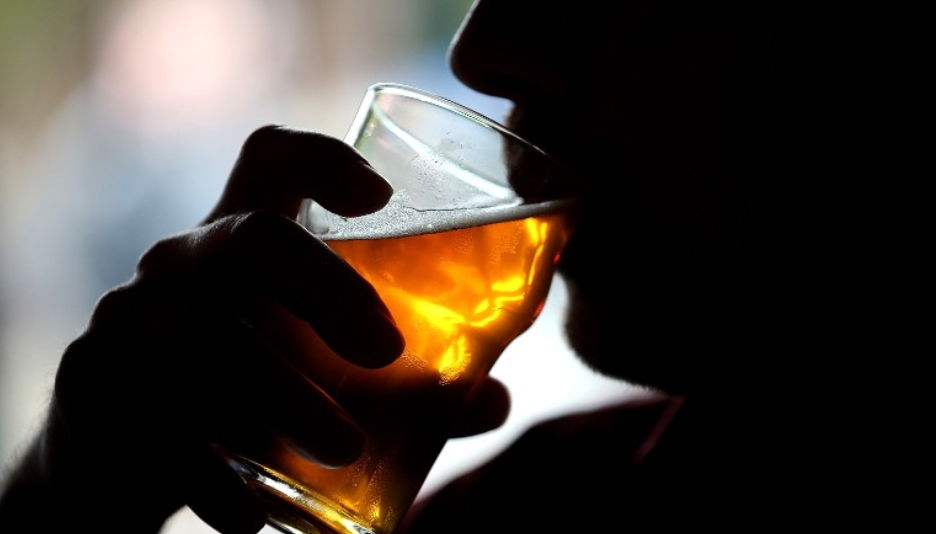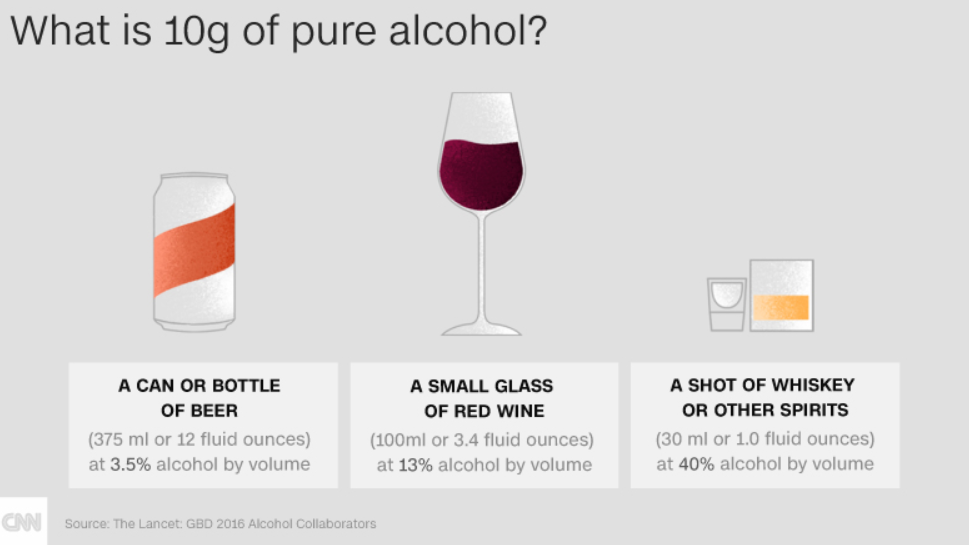研究表明,适量饮酒可以改善老年人的认知健康
If you enjoy a daily cocktail or some wine with dinner, you'll want to raise your glass to this: A new study found low to moderate drinking may improve cognitive function for White middle-aged or older adults.
如果你喜欢每天在晚餐时喝一杯鸡尾酒或葡萄酒,你会想要为这一点举杯:一项新研究发现,低至适度的饮酒可能会改善中年或老年白人的认知功能。
Low to moderate drinking was defined as less than eight drinks per week for women and less than 15 drinks per week for men.
低至适度饮酒定义为女性每周少于8杯,男性每周少于15杯。

The findings support prior research which found that, generally, one standard drink a day for women and two a day for men -- which is the US guidance -- appears to offer some cognitive benefits.
这一发现支持了之前的研究,即一般来说,女性每天喝一杯标准的饮酒量,男性每天喝两杯标准饮酒量——这是美国的指导——似乎对认知有一些好处。
"What we know for sure is that drinking too much alcohol definitely harms the brain in a major way. What is less clear is whether or not low to moderate intake may be protective in certain people, or if total abstinence is the most sound advice," said neurologist Dr. Richard Isaacson, founder of the Alzheimer's Prevention Clinic at NewYork-Presbyterian and Weill Cornell Medical Center.
“我们确定的是,喝太多酒肯定会在很大程度上损害大脑。纽约长老会和威尔康奈尔医学中心阿尔茨海默病预防诊所的创始人、神经学家理查德·艾萨克森博士说:“目前尚不清楚的是,低到适度的摄入量是否对某些人有保护作用,还是完全戒断是否是最合理的建议。”。
When compared with those who said they never drank, low to moderate drinking was associated with significantly higher cognition scores for mental status, word recall and vocabulary over time, as well as with lower rates of decline in each of those areas.
与那些说他们从不喝酒的人相比,低到中度饮酒的人在精神状态、单词记忆和词汇方面的认知得分显著更高,而且这些方面的下降率也较低。
"Few studies have evaluated whether the effects are similar in different racial or ethnic groups," Anstey said. "This [finding] raises the possibility that ethnic groups vary in their vulnerability to the cognitive effects of alcohol."
“很少有研究评估这种影响是否在不同的种族或民族群体中相似,”安斯蒂说。“这一发现提出了一种可能性,即不同民族对酒精认知影响的脆弱性有所不同。”
However, Anstey cautioned, there are founding factors to consider before defaulting to any conclusions that drinking varies by race.
然而,安斯蒂提醒说,在得出饮酒因种族而异的结论之前,有一些基础因素需要考虑。
"Patterns of alcohol drinking are associated with socio-economic status and other cultural factors," she said. "It is very difficult to disentangle the biological from social mechanisms at play here."
她说:“饮酒模式与社会经济地位和其他文化因素有关。”“在这里,很难把生物学和社会机制分离开来。”
In the end, this new study doesn't change what most doctors already recommend, experts say.
最后,专家说,这项新研究并没有改变大多数医生已经提出的建议。
"In my clinical practice, I look at the totality of evidence and then individualize recommendations for the person being cared for," Isaacson said.
艾萨克森说:“在我的临床实践中,我会查看所有的证据,然后为被照顾的人提出个性化的建议。”
For women, a general maximum target is about four to six drinks per week in his Alzheimer's prevention clinic, he said. In men that would be 10 to 12 servings per week.
他说,对于女性来说,他的阿尔茨海默氏症预防诊所的一般最高目标是每周喝四到六杯酒。男性则是每周10到12杯。

"But this is not a 'one size fits all' choice," Isaacson added. "These decisions should be tailored based on body weight, for example, and also modified based on whether the person has a history of alcohol or substance abuse.
“但这并不是一个‘一刀切’的选择,”艾萨克森补充道。例如,这些决定应该根据人的体重进行调整,并根据此人是否有酗酒史或药物滥用史进行修改。
"Further, it's not just about 'what and how much' alcohol, it's also important to consider 'when and how' the alcohol is consumed, Isaacson said.
此外,艾萨克森还说,这不仅仅是关于“喝了什么酒和喝了多少酒”,重要的是要考虑“何时以及如何”消费酒精。
For example, having a glass of wine with an early dinner is "more sensible than two glasses late at night on an empty stomach close to bedtime," he said.
他举例说,早吃饭时喝一杯葡萄酒“比在深夜临睡前空腹喝两杯更明智”。
"Alcohol before bed has the tendency to lead to poorer overall quality sleep, which also impacts dementia risk," he added.
“睡前饮酒会导致整体睡眠质量下降,这也会影响痴呆症的风险,”他补充道。







